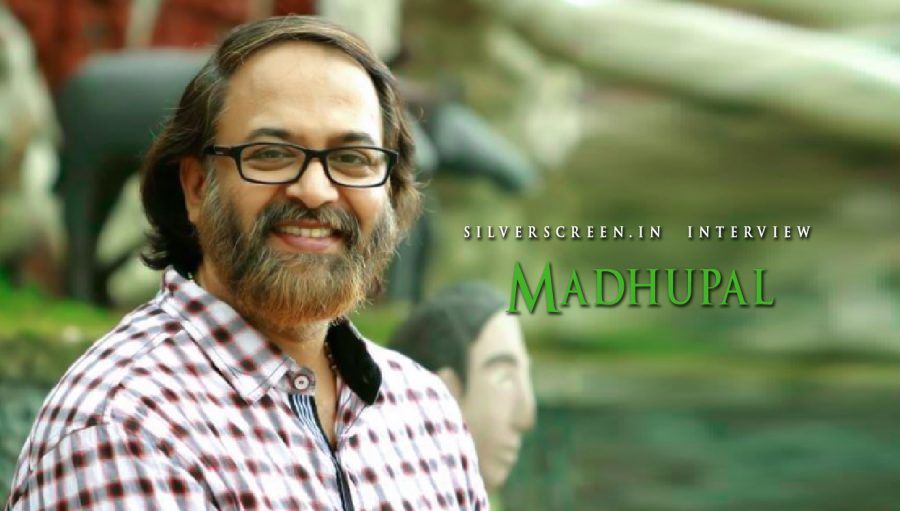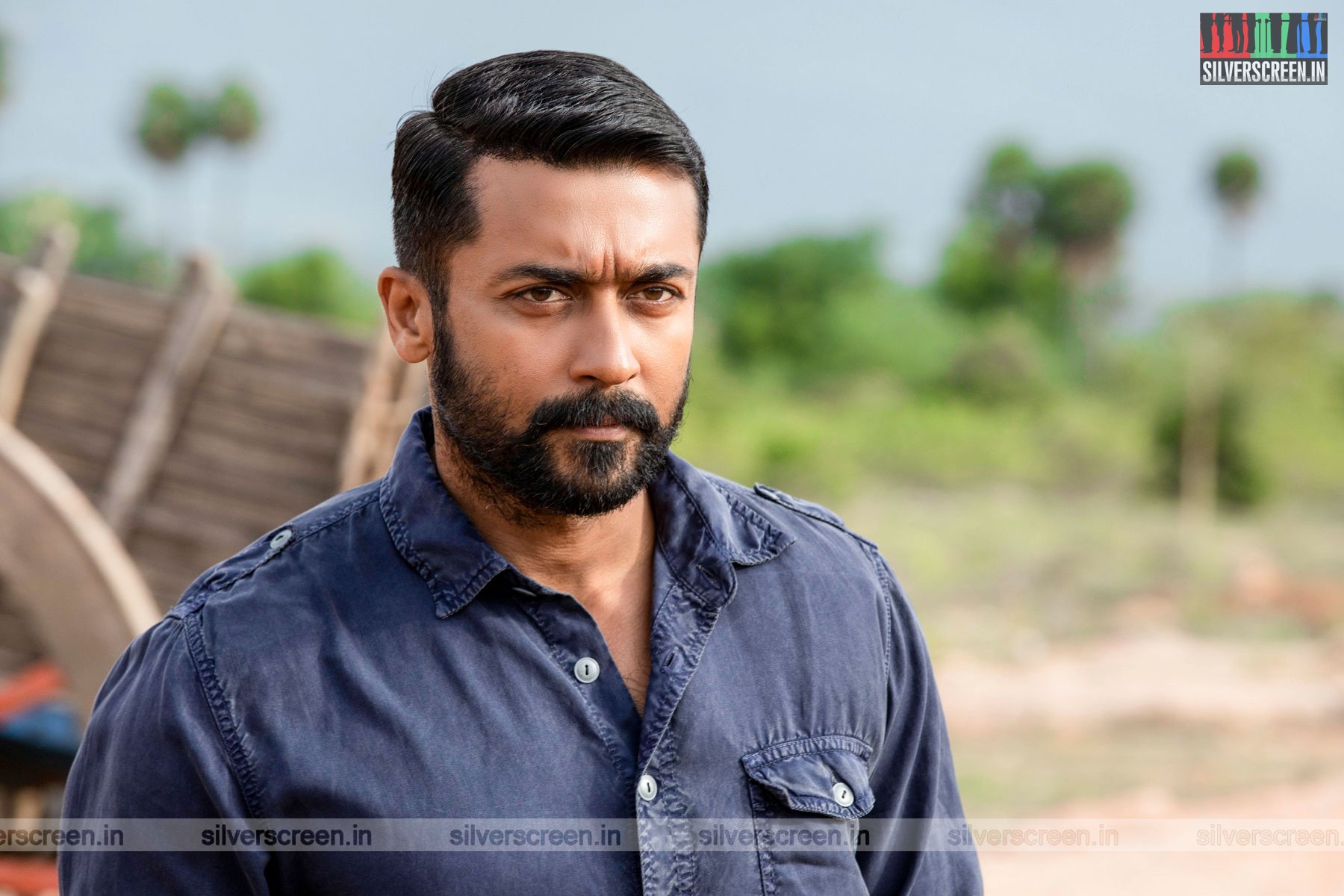Madhupal’s career as a filmmaker clocks up a decade this year; it also coincides with the release of his third directorial, Oru Kuprasiddha Payyan, which is scheduled to hit theatres this Friday
Madhupal’s original entry into the film industry happened in the early 90s. In 1994, on the sets of Rajeev Anchal’s Kashmeeram where he had been working as an assistant director, an actor cast in a pivotal role had to be replaced at the last moment. That proved to be Madhupal’s debut – an inadvertent one – in front of the camera. He then assumed that a few acting opportunities would help him make his first film. However, he ended up being an actor a little longer than he had hoped to. Now, with five books, three feature films and two tele-serials as director, and numerous acting ventures, his oeuvre looks rich.
Between his directorial debut, Thalappavu, and his next, Ozhimuri, is a gap of four years, and he waited for another four years to make Oru Kuprasiddha Payyan. “I am in no hurry,” he says. “I can’t make films back to back. I had been actively looking for and discussing ideas, reading, writing and travelling. I will venture out to make a movie only if I am fully convinced that it needs to be made,” says Madhupal.
We meet at the lounge of a well-known post-production studio in Kochi where the final work of his upcoming film, Oru Kuprasiddha Payyan, is underway.
The film, a crime-drama, has three popular young actors playing the lead roles. There are rumours that the film is based on a controversial murder case that rocked Kerala in the 80s. “It is only partially true,” he says. “It’s not based on the incident, but we have used some elements of the real story to flesh out the idea we had conceived. This is a familiar story, centered around a humble young man whose life seems too simple from the outside. But everyone has a second face that they don’t like to reveal to the world, don’t they?”
His films, he says, are not about the story or ‘plot twists’. “When I made Thalappavu in 2008, the audience in Kerala weren’t familiar with non-linear form of narration. The film demanded a non-linear narration because it is about a series of events everyone in Kerala knew by-heart (Thalappavu is centered around the encounter killing of Naxal leader Varghese in Wayanad). To tell such a famous story effectively, you need to experiment with the narration.”
He used a non-linear form of narration in Ozhimuri too. Interestingly, in all three films, law and order system of the land plays a pivotal role. In Ozhimuri, the lingo the lawyers use is the traditional ‘vyavahara bhasha‘. In Thalappavu, the core of the plot is the unlikely bond between Joseph, a man who fights the system from its peripheries, and Ramakrishna Pillai, a police man.
“I am petrified of the police. Unreasonably though,” he laughs. “I love Bram Stoker’s Dracula because it terrifies me. I have many friends who work in the police force. I have met police officers, have visited police stations and jails as part of research for my films. Yet, the sight of the police sends a slight shiver down my spine. The love I have for stories related to crime, law and order must also be because of this mix of fear and fascination,” he laughs.
Madhupal grew up reading a lot of crime fiction from across the world. There is palpable excitement in his voice when he starts talking about his favorite crime novelist in Malayalam, late Kottayam Pushpanath. “Have you read him? There might be few people in my generation who haven’t read his works,” he says. “When I was 14 years old, I started a postal correspondence with him. His writings have influenced me like no other. I still have a collection of his books at home.”
The extensive research that precedes the making of every film is his favorite part of filmmaking. For Ozhimuri, he consulted historians and geography experts who were well-versed with the landscape of south Travancore region. Thalappavu took him to retired police officers who worked in Kerala in the seventies. For Oru Kuprasiddha Payyan, he traced people who had spent long prison sentences. “All the details that they parted with me might not appear in the film, but every one of those meetings enriched my understanding of the characters and the film’s landscape. Also, it helped me direct the actors.”
An exploration of the past – of an individual as well of a community at large – is a recurring theme in Madhupal’s films. His films not just narrate a story, but offer a detailed exploration of the time and space where the tale is set. In Thalappavu, Joseph is a communist who has lost hope in the law and order of the land. He has seen and known generations of his people suffer in the hands of oppressors. In Ozhimuri, Sarath (Asif Ali), a naive 26-year-old, realises at one point that he is a splitting image of his father, Thanu Pillai, whom he despises. And Thanu Pillai’s exasperation stems from his father, Sivan Pillai.
“I believe every human being is inescapably tied to his roots. Without a knowledge of history, a society cannot prosper or even survive. In Malayalam, we say ‘Anubhavam Guru‘ [Experience is the greatest teacher]. It’s important to listen to what history says. A firm understanding of the past guides you morally and ethically.”
Right representation of time and space is, in his opinion, how you talk politics through films. “Politics is in every choice we make in life; the bonds and barriers we create, the community we are a part of. Human beings are not milk weeds floating in the air,” he says.
“There are filmmakers and artistes who say they don’t want their works/films to be ‘political’. I believe it is okay to take that decision. Maybe they are not vocal about their politics, but the way they work or conduct in the society speaks of their politics.”
His biggest excitement while making OKP, was about directing the bunch of young actors. “I let them perform freely, without reining them in too much. This young generation of actors doesn’t want to out-rightly oppose anything. They want to learn and understand before reacting.”
Madhupal is a regular at Kerala’s film festival circles. “The purpose is to find meaning to life,” he tells me. “You can’t gauge everything in terms of money. It’s important to read, write, indulge in meaningful conversations, watch movies… cinema has taught me about the world, its history and different cultures, more than any school textbook has. It has helped me get a sense of right and wrong,” he says.
I tell him of a stunning vertigo shot that he used in Thalappavu. “Cinema isn’t just a peripheral experience. It has to go into your head. Sometimes when I watch a film, I have noticed that shots are totally predictable. I don’t want that to happen in my films. I work carefully in shot design and the screenplay,” he says.
“Could you guess what the film’s story was from the trailer?” he asks. He reads some of the comments under the YouTube video and smiles to himself. “This whole hype created around trailers fascinates me. I read many trailer-reviews where people have tried to speculate what the film must be about. None of them really got it right, but I was impressed by their creativity. They are imagining their own version of the movie using some bits and clues from a brief trailer. I remember a teacher asking us to draw a picture of cashew nut when I was in primary school. While most of the kids drew a fruit, I made a sketch of two leaves covering a fruit. The teacher was impressed. Those two leaves were my mark of creativity.”
Recommended
During his days as an assistant director, he worked with Jude Attippetty, acclaimed small-screen filmmaker, in serials like Sararanthal. After making his debut as a feature filmmaker, he ventured into directing his first television serial, Daivathinte Swantham Devootty, in 2009. PF Mathews, the National Award-winning scenarist, wrote the screenplay. It won the State Television Award for best serial in 2011. In 2017, he directed another serial, Kali Ghantakki, for Amrita television channel, based on G R Indugopan’s eponymous novel. Kali Ghantaki won 8 State Awards in 2018.
“For me, there is no ‘class’ division between small screen and big screen. I have undertaken both with equal seriousness and devotion,” he says. “For Kali Ghantaki, we experimented with visual story-telling on small-screen format; used cutting edge cameras, crane, jib and helicam. Small-screen isn’t very small anymore. Many houses have television set of 50 inches or bigger size.”
Oru Kuprasiddha Payyan stars Tovino Thomas, Anu Sithara, Nimisha Sajayan, Saranya Ponvannan among others, with music by Ouseppachan and cinematography by Noushad Shareef.
*****
The Madhupal interview is a Silverscreen exclusive.



